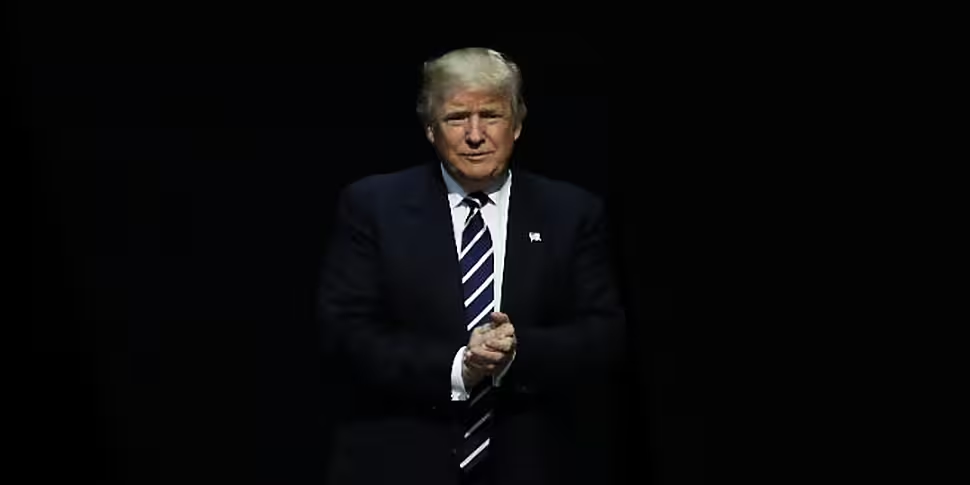With €85m of private donations so far, Donald Trump's inauguration has proved to be an attractive way for corporations to set out their stall for America's next commander-in-chief.
Mr Trump's inauguration committee has received enough money to pay for the event twice over and money is still flowing in.
Most donors remain anonymous and the committee has 90 days to name them.

Blue chip donors named so far include aircraft maker Boeing, which has donated €941,000.
The company's multibillion-dollar Air Force One contract was last month threatened with cancellation by Mr Trump.

Oil and gas giant Chevron has donated €470,500 while AT&T has supplied extra mobile capacity for the National Mall.
US taxpayers will provide a considerable share of the budget despite a big share of the inauguration costs being covered by the private donations.
Public funds will pay for the €4.7m cost of building a bunting-decorated 10,000 square-foot platform for the swearing-in.
The US public also pays security costs for the event, which brings together a big chunk of the US political leadership, hundreds of thousands of ordinary Americans and a fair share of protesters.
This will include a €2.3m overtime bill for the US Capitol police force.
Federal funds will also pay for more than 5,000 service members from across the regular armed forces, plus a further 7,500 National Guard reservists. The District of Columbia expects to spend €27.5m, which it will claw back from federal government after the event.
All of which leaves an unprecedented and unspent pot of private donations for Mr Trump's inauguration team to spend on pop singers, parades, choirs, celebratory balls, bunting - and more than 1,000 portable toilets.

The man who organised America's last two inaugurations asks why donors' money is still coming in and wonders where it is going to go.
"We planned the two largest inaugurations in the history of our country and we never spent anywhere near that," said Steve Kerrigan, who led Barack Obama's 2009 and 2013 inauguration events.

"I can't imagine how they are going to spend that amount of money - and why they would even keep raising money," he said.
Mr Kerrigan’s committee collected €52m for Mr Obama’s first inauguration and €40m for his second.
However, Mr Obama's first inauguration team left a surplus, meaning Mr Trump's record-breaking haul of private and corporate donations could have paid for both of his predecessor's events.
US government transparency advocates the Sunlight Foundation have said that Mr Trump's lack of disclosure of inauguration donors to date has "set a tone" and has implications for White House transparency and accountability.
Donations notwithstanding, Mr Trump’s inaugural planner Tom Barrack has suggested that the 20 January ceremony and celebrations will be more conservative, as they avoid a "circus-like atmosphere" in favour of a "back-to-work" mindset with "soft sensuality".
The Trump committee is planning fewer set-piece events, balls, parades and performances for the day. Mr Trump is holding three inaugural balls; Mr Obama had 10 balls at his first inauguration.
Mr Trump's team hopes to keep its parade to 90 minutes. The longest inauguration parade, with 73 bands and 59 floats, lasted more than four-and-a-half hours, at Dwight Eisenhower's first inauguration in 1953.

The President-elect's inaugural team has failed to attract the kind of A-list performers who turned out in force for Mr Obama. Artists including Elton John, Andrea Bocelli, Celine Dion and Charlotte Church have all publicly declined an invitation.
Mr Trump's announced headliners are teen singer Jackie Evancho, the Mormon Tabernacle Choir and the Radio City Rockettes.
Leftover donations will go to charity and other White House events.
Spokesman Boris Epshteyn said the inaugural committee is "fully focused on organising world-class events that honour our nation's tremendous history and reach every corner of the globe".
Mr Trump has not specified the charities which will benefit from money left over after the event. His past pledges to donate to charity have not always gone ahead as announced.
Mr Obama used his excess inaugural dollars to help pay for the annual White House Easter egg roll and other public events.









